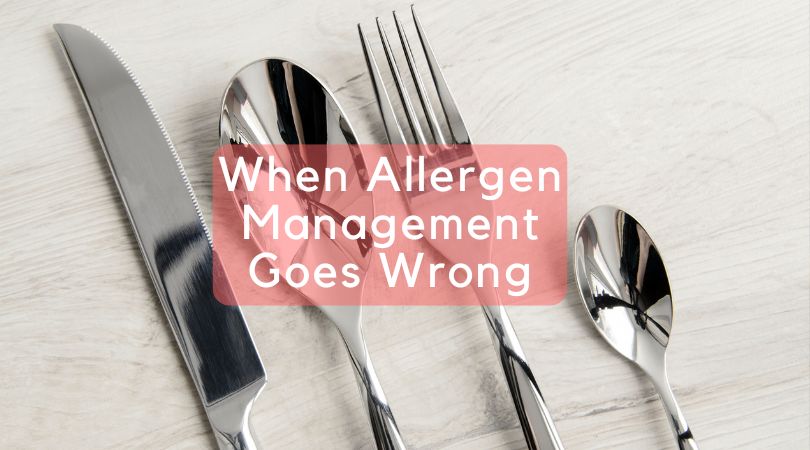In the fast-paced world of hospitality, allergen management is not just a regulatory requirement but a matter of life and death. The consequences of mishandling allergens can range from mild discomfort to severe allergic reactions and even fatalities. It’s imperative that kitchen and restaurant leaders understand the gravity of the situation and take proactive steps to protect their customers.
Our extensive research involved confidential interviews with over 100 chefs and restaurant managers, conducted off the record to encourage candid discussions. What emerged from these conversations were sobering anecdotes of allergen-related incidents that had occurred in their establishments. From minor
errors in labelling to systemic failures in communication, the stories painted a troubling picture of the state of allergen management in the hospitality industry.
Take, for example, the case of Hotel A, a high-end establishment that prided itself on its impeccable standards. A customer reported inaccuracies in the hotel’s allergen information, triggering a surprise inspection by regulatory authorities. What followed was chaos behind the scenes as the hotel scrambled to rectify its shortcomings. While the hotel managed to address the immediate issues, the fallout from the incident lingers, highlighting the need for a more robust allergen management system.
Similarly, Restaurant A, renowned for its culinary excellence, found itself embroiled in a crisis when a mislabelled order led to a severe allergic reaction in a customer. Despite conducting thorough risk assessments and training its staff on allergen handling protocols, the restaurant’s efforts were undermined by systemic weaknesses in its processes. The incident served as a wake-up call for the restaurant industry, underscoring the importance of accurate allergen labelling and stringent quality control measures.
These are just a few examples of the many challenges faced by the hospitality sector in managing allergens effectively. The prevalence of such incidents underscores the urgent need for a solution-based approach that addresses the root causes of allergen mismanagement.

In addition to these real-life anecdotes, we also examined tragic case studies that highlight the human cost of allergen mishaps. Take, for instance, the heartbreaking story of Emma Sloan, a 14-year-old girl who lost her life after inadvertently consuming peanuts at a restaurant buffet. Emma’s tragic death serves as a stark reminder of the dangers posed by allergens and the need for heightened awareness and vigilance.
Similarly, the case of Owen Carey, who died on his 18th birthday after suffering a fatal allergic reaction to a mislabelled meal at a popular burger restaurant, highlights the devastating consequences of inadequate allergen labelling and communication. Owen’s story has since become a rallying cry for stricter regulations and greater accountability in the food industry.
These incidents, while tragic, serve as important lessons for the hospitality sector and underscore the need for comprehensive allergen management solutions. At TrustDish, we are committed to providing such solutions, leveraging innovative technologies and best practices to help restaurants and food businesses safeguard their customers against allergen-related risks. Together, we can create safer and more inclusive dining experiences for all.


